#to separate the gospel of jesus christ
Text
Five years ago, President Nelson recommended we start referring to our church by it’s full name, de-emphasizing the use of ‘Mormon’ as a nickname. This struck a number of members as incongruous. The full name of the church is quite a mouthful (Pres. Nelson recommends “Church of Jesus Christ” as an alternative). Also, we were just coming off the famous ‘Meet the Mormons’ movie and a whole series of ‘I’m a Mormon’ videos. These media efforts helped to showcase real members and our diversity and humanness as part of breaking down harmful stereotypes (exacerbated by the new Book of Mormon musical’s parody/highlighting of our cultural problems). So people were a bit taken aback and naturally confused, and some began using compliance with this directive as a measuring stick to determine if their neighbor was really, truly ‘following the prophet’ (because, hey, we do have our cultural problems with focusing on what actually matters).
I used to be in the ‘Mormon describes me and my culture and I’m used to it and will keep using it’ camp. But I think I am changing my tune, and here’s why: Almost everything I dislike about my church is culture-based. The actual doctrine is pretty awesome, very world-class, and I will hold it up against anything.
And maybe it isn’t a bad idea for church leaders and church members to keep repeating the name of Jesus Christ on a regular basis as a gentle reminder for us to keep moving away from the outward culture to the inward gospel and the change of heart we all need as disciples of Christ.
#queerstake#tumblrstake#lds#mormon#religion#ldsconf#the full name of the church is a bit much#but thinking today how important it is#to separate the gospel of jesus christ#from the culture bits
110 notes
·
View notes
Text
2023 AUGUST 18 Friday
"Therefore, what God has joined together, no human being must separate."
~ Matthew 19:6
#bible#scripture#bible verse#gospel#Matthew#therefore#God#Lord#Jesus#Christ#joined#together#no#human#being#separate
0 notes
Text
Lucifer
Lucifer is a Latin word coming from the words lux, meaning light, and fero, meaning to bear or to carry. Literally translating to light-bearer.
Lucifer as a Roman Deity
Lucifer has had many faces throughout history. One of these being the Roman deity of the morning star, or Venus, considered the male equivalent of the goddess Venus. He is attributed to being the god of enlightenment and illumination. Lucifer is often depicted carrying a torch, and said to be equal in beauty to the goddess Venus. Due to being the morning star, I can also see Lucifer being associated with war as well. Especially considering his association with learning and knowledge, as well as that Venus also historically had war epithets.
In the Greek pantheon, they separate the morning star and the evening star into two seperate deities, being Phosphorus/Eosphorus and Hesperos. Eosphorus meaning “dawn-bringer”, and Phosphorus meaning “The bearer of light”. Phosphorus and Hesperos are the sons of Eos, Goddess of dawn, and Astraios, God of dusk. Phosphorus is the father of the Hesperides, nymphs of the evening time and light of the sunset.
Lucifer in Abrahamic Religions
Historically, Lucifer was never mentioned in the Bible at all. His name being associated to Christianity nowadays is due to a mistranslation of a poem about a fallen king. However, he is a big part of Christian culture now, and there are myths associated with him.
Lucifer was said to be the most beautiful and intelligent of God’s angels. He was God’s right hand. Until he defied God. There are many different versions of the fall of Lucifer.
One version of this story says that Lucifer became overly prideful of himself, his beauty, intelligence, power, that he thought himself worthy of being worshipped equal to God. Because of this, God cast him out of heaven.
Another version is that Lucifer was jealous of Jesus Christ. He gathered the angels and brought forward the idea of worshipping him instead of Jesus. Some of the angels sided with Lucifer, while others did not. There was a meeting between God, Lucifer, and all of the angels in which God said that their rebellion was unforgivable. There was a war between the two sides, but ultimately God and his angels won. Lucifer and the angels who followed him were banished from heaven.
Lucifer in Modern Witchcraft
In more modern witchcraft, there is a tradition which states that Diana, queen of witches, created Lucifer when she split herself into two pieces, darkness and light. She kept the darkness for herself, and Lucifer kept the light. Lucifer and Diana also have a child, Aradia. In this tradition, Lucifer is seen as the god of light, and masculine energy. One of the most influential sources for this tradition is The Gospel of the Witches by Charles Godfrey Leland.
Lucifer in Demonolatry
In demonolatry, Lucifer has many titles. Prince, King, Emperor, Lord. Lucifer is a demon of transformation, enlightenment, awakening, self-discovery, self-empowerment, and more. He is usually attributed to the element of air, and also pride.
Lucifer’s Associations
Anything with the * symbol next to it means that it is my own UPG.
Animals:
Snakes
Rams
Peacocks
Corvids (crows, ravens)
Cats
Spiders
Moths
Colors:
Black
Grey
Gold
Red
Teal
Blue, especially pale blue*
Purple*
Crystals:
Obsidian
Onyx
Hematite
Celestite
Seraphinite
Garnet
Sunstone
Clear quartz
Carnelian
Ruby
Copper
I am aware that copper isn’t a crystal.
Plants:
Apples
Pomegranates
Roses
Cinnamon
Cloves
Lavender
Blackberries
Sage
Black pepper
Garlic
Lilac
Spicy peppers*
Other:
Stars
The number 7*
Spring equinox
Autumn equinox*
Offerings
Strawberries
Blackberries
Chocolate
Apples
Pomegranates
Honey
Spicy foods*
Sweet things, especially baked goods
Juices, especially apple or grape
Coffee
Roses
Feathers
Devotional Acts
Shadow work
Learn about the sciences or the arts
Create art of any kind
Face your fears
Learn about any of his associated animals
Magical workings, especially those that fall under his sphere of influence
Learning in general
Developing your psychic abilities and spiritual senses (the clairs)
Spiritual progression
Anything marked with the symbol * means that it is my own UPG
226 notes
·
View notes
Text
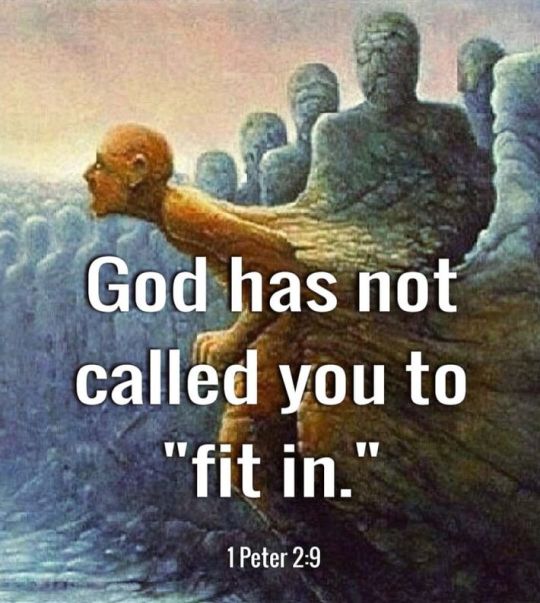
SOLD-OUT
Romans 1:1 - "Paul, a servant of Jesus Christ called to be an apostle, separated unto the Gospel of God."
Many are called, but we are never separated. That separation is a threefold thing:
FIRST: The New Creation separates us from the old life.
SECOND: As the Word is built into us, we are separated unto Christ. First, there is a separation from the world; now there is a separation unto the Master. Jesus becomes the Lord of our lives. His Word dominates us.
THIRD: In our walk then, as we are separated unto Christ, we come to understand God’s PURPOSE for our life (our DESTINY). We ask, seek, and knock (Matthew 7:7,8) until we understand what that purpose is.
As we receive revelation of that purpose through the Holy Spirit we separate ourselves from those things which are not sinful in themselves but unnecessary. This separation continues year after year as we pursue our DESTINY in Christ, walking in the fullness of His fellowship.
QUESTIONS TO ASK MYSELF:
Am I completely sold out to the Lord Jesus Christ?
How much time per day do I spend meditating on Jesus and His PURPOSE for my life vs. participating and thinking about society (it's demands, requirements, and pleasures)?
What is my plan to increase my Christ consciousness?
ALBERT FINCH MINISTRY
36 notes
·
View notes
Photo

https://freethoughtnow.org/easter-challenge/
I HAVE AN EASTER challenge for Christians. My challenge is simply this: tell me what happened on Easter. I am not asking for proof. My straightforward request is merely that Christians tell me exactly what happened on the day that their most important doctrine was born.
Believers should eagerly take up this challenge, since without the resurrection, there is no Christianity. Paul wrote, “And if Christ be not risen, then is our preaching vain, and your faith is also vain. Yea, and we are found false witnesses of God; because we have testified of God that he raised up Christ: whom he raised not up, if so be that the dead rise not.” (I Corinthians 15:14-15)
The conditions of the challenge are simple and reasonable. In each of the four Gospels, begin at Easter morning and read to the end of the book: Matthew 28, Mark 16, Luke 24, and John 20-21. Also read Acts 1:3-12 and Paul’s tiny version of the story in I Corinthians 15:3-8. These 165 verses can be read in a few moments. Then, without omitting a single detail from these separate accounts, write a simple, chronological narrative of the events between the resurrection and the ascension: what happened first, second, and so on; who said what, when; and where these things happened.
Since the gospels do not always give precise times of day, it is permissible to make educated guesses. The narrative does not have to pretend to present a perfect picture–it only needs to give at least one plausible account of all of the facts. Additional explanation of the narrative may be set apart in parentheses. The important condition to the challenge, however, is that not one single biblical detail be omitted. Fair enough?
I have tried this challenge myself. I failed. An Assembly of God minister whom I was debating a couple of years ago on a Florida radio show loudly proclaimed over the air that he would send me the narrative in a few days. I am still waiting. After my debate at the University of Wisconsin, “Jesus of Nazareth: Messiah or Myth,” a Lutheran graduate student told me he accepted the challenge and would be contacting me in about a week. I have never heard from him. Both of these people, and others, agreed that the request was reasonable and crucial. Maybe they are slow readers.
[ Continued... ]
==
It’s funny because it’s complete fiction and they accidentally figured it out.
#Dan Barker#Easter#christianity#jesus christ#resurrection#resurrection myth#crucifixion#crucifixion myth#bible#bible study#bible myths#myth of jesus#Easter challenge#religion#religion is a mental illness
96 notes
·
View notes
Text
“Mine”

(by request, my homily from earlier today)
If you were going to summarize the Gospel we just heard [the parable of the wicked tenants, linked at the end], how would you do it?
For me, it comes down to one word – “mine.”
What we see in today’s Gospel is ugly. And it is nothing other than the end product of “mine,” the most dangerous idea our species has ever come up with.
When I say “mine,” I mean all mine.
Not just me first. It’s not enough that I win. You have to lose.
Taken to its natural conclusion, that is where “mine” ends up.
We’ve all seen it happen, maybe even in our own families. When mom dies. And one of the kids says “mine” about something in the estate. Something that mom left to someone else.
Whether it’s been a long time coming, or it’s a complete surprise, as that estate plays out you get to see a side of someone you thought you knew. A part of them that is truly ugly. And one that has no room for anyone else.
That is “mine” in action.
Or maybe you’ve lived it.
You worked there for ten years. You’re a top performer. Nobody does the job as well as you do. And everyone knows it.
When the chance for a promotion opened up, you were the obvious choice.
And then they gave it some kid who hadn’t even been there for a year.
That was your opportunity! You put in the time. No one was more qualified than you. It was yours. You deserved it. You were robbed!
That is what “mine” feels like.
And that is what we see playing out in today’s Gospel. “Mine” has gotten its claws into the tenants. And once it starts, it doesn’t stop.
That’s why it keeps ramping up, and why it gets completely out of hand. So that they can finally say “mine” – about the vineyard.
The thing is, the parable stops before “mine” is done having it’s way with the tenants.
If the owner hadn’t stepped in, if the tenants had taken over the vineyard?
“Mine” would have kept going. And they would have turned on each other, until only one of them was left to say “mine.”
Because that is how “mine” works. “Mine” means all mine.
It’s not enough that I win. You have to lose.
Taken to its natural, unavoidable conclusion, that is where “mine” ends up.
If you want to know what can destroy the strongest bonds of family, love, and friendship, this is it.
If you want to know what can separate us from God, this is it.
If you want to know what got us tossed out of the Garden, this is it.
“Mine” is the original sin.
And you’re thinking, “That’s not me, my sister was the greedy one when mom died. Besides, I’ve never beaten up a messenger, much less killed someone. None of this applies to me, right?”
I wish.
What Jesus is showing us is where “mine” ends up. But that’s not where it starts.
For most of us, it usually starts in disguise. And you and I are the ones camouflaging it.
We disguise “mine” in all kinds of ways. But whether we clothe in the language of success. Or power. Or influence. Or wealth. Or anger. Or even fear. They’re all just different ways of saying “mine.”
And no matter how we disguise “mine” at the beginning, if we let “mine” get its claws into us, this is where it ends up.
So, what can we do about it?
First, we’ve got to be honest about our limitations. You and I both know that we can’t just tell ourselves to not do something. And then pretend like that’s going to work.
If nothing else, we’ve been through enough Lents, where we’ve tried to give up even the most trivial things, to know better.
If we’re going to keep “mine” from sinking its claws into us, you and I need to do something. We need a concrete, positive way to respond.
This is what discipleship and stewardship are all about. How?
Discipleship is practical. It’s accepting Jesus as your Lord and Savior. And then? Actually living like Jesus is your Lord and Savior.
As our diocesan synod put it, discipleship means making “a conscious, firm decision, carried out in action,” to be a follower of Jesus Christ – no matter the cost to yourself. It’s “a committed approach to living a Christian life within the Catholic Church.” That’s the official stuff.
What it really means is being who you are, as a Christian.
And stewardship? It’s how we put discipleship into practice. In every part of our lives. From how we treat ourselves, to how treat others. From how we use the influence that we have, to how we use the things that we have.
It’s living out who you are, as a Christian.
So, how do you and I do that?
I’m going to tell you something you already know. This is not easy.
And it’s not a one-and-done. This is something that has to be done over and over.
In every interaction. In every decision. In every action.
In every day. In every hour. In every thing.
If you’re serious, here’s the roadmap. From C.S. Lewis,
Give up yourself, and you will find your real self. Lose your life and you will save it.
Submit to death, death of your ambitions and favorite wishes every day and death of your whole body in the end. Submit with every fiber of your being, and you will find eternal life.
Keep back nothing. Nothing that you have not given away will ever be really yours.
Nothing in you that has not died will ever be raised from the dead.
Look for yourself [say “mine”], and you will find in the long run only hatred, loneliness, despair, rage, ruin, and decay. But look for Christ and you will find Him, and with Him everything else thrown in.
Sunday’s Readings
#Mine#Who you are in Christ#God#Jesus#Catholic#Christian#Church#C.S. Lewis#Discipleship#Stewardship#Living the Faith#Moments Before Mass
38 notes
·
View notes
Note
One obvious difference between polytheism and the mainline Christian view of God is that, aside from the Evangelicals who are just all about Jesus all the time (and they're theologically flimsy at best), no one worships the persons of the trinity separately. That's simply not a thing that a proper polytheist take on Christianity would do.
Like I said, Christians aren't polytheist, they are monotheists, this must be established. I did make jabs at the concept cause I think their theology is terrible and the idea of polytheism isn't far-fetched since the Father-Son model was a relatively attractive concept for citizens, considering the hierarchy of pantheons in the Roman Empire. Muslim and Jewish people assert that the Trinity is a form of "association" Shirk/Shituf because it renders God's uniqueness faulty by sharing it with three distinct persons, it's a right exclusive to the One. The Tanakh never foreshadows the trinity and any Christian scholar who would say otherwise are wrong, it's all based on speculations, theories and suppositions. The Church Fathers vandalised, distorted, and altered Scripture to make it seem like it did foreshadow the Trinity or the inevitable birth of Christ to further the Christological narratives when none of these individuals have any knowledge in Hebrew and Aramaic. Jewish scholars have been studying their scriptures intensly for the past 3000 years, it makes no sense for the TANAKH to be so ambigious about the Trinity.
Anyways, Christians are wired to think there are three distinct persons in the One God. This is Trinitarian Monotheism, because they believe that three persons are the One True God, contrasting from the Jewish and Islamic Unitarian Monotheism, which asserts that the Father is One. Jewish theology does not align with Christian theology, it simply doesn't. Zoroastrianism is a Monotheistic religion with a dualistic belief system, but it's not compatible with Jewish and Islamic monotheism (but there are many overlapping exchanges between them). Like I said, scholars of Islam and Judaism do not refer to them as polytheists, but they do accuse Christians of associating God with partners or persons.
What's axiomatic is that there are no records from the Gospels or the Apostles ever asserting this particular view. Christians initially believed in a Unitarian God, adhering to adoptionism, docetism, and then a bianitarian view on God until the Church Fathers settled with the Trinity in the 4th century, throwing every other doctrine out of the window. Even with that set in stone, they still argued over the Nature of God in Chalcedon and subsequent councils throughout the history of Christianity. The Trinity is still an ambigious doctrine even until this day. There's simply nothing convincing about this theology, it's an innovation; why then would it take so much time for God to establish the most imperative Christological tenant, while most Early Christians lived in ignorance? Divine inspiration or not, it's a theological blunder
84 notes
·
View notes
Text
2 Nephi 5
So y'all now know where I stand on Nephi being an unreliable narrator. In one of my previous posts, I talked about this in reference to his treatment of his family and his leadership. I tackled the racism superficially, so let's go ahead and choke slam it the rest of the way.
20 Wherefore, the word of the Lord was fulfilled which he spake unto me, saying that: Inasmuch as they will not hearken unto thy words they shall be cut off from the presence of the Lord. And behold, they were cut off from his presence. 21 And he had caused the cursing to come upon them, yea, even a sore cursing, because of their iniquity. For behold, they had hardened their hearts against him, that they had become like unto a flint; wherefore, as they were white, and exceedingly fair and delightsome, that they might not be enticing unto my people the Lord God did cause a skin of blackness to come upon them.
2 Nephi 5:20-21
Has this passage been used historically to enable racism in the Church, including the justification for the racial priesthood restriction? Yes. Absolutely. Curse of Cain. Curse of Ham. Less valiant in the presence. Slavery being perpetuated into eternity. The whole shebang. This isn't the origin, as early pro-slavery church leaders pursued biblical justifications for slavery like everyone else. What this verse did was present the opportunity for Saints so inclined to create their own Mormon flavored versions of those justifications.
How does Come Follow Me approach these attitudes and the racism that perpetuated them?
What was the curse that came upon the Lamanites? In Nephi’s day the curse of the Lamanites was that they were “cut off from [the Lord’s] presence … because of their iniquity” (2 Nephi 5:20–21). This meant that the Spirit of the Lord was withdrawn from their lives. When Lamanites later embraced the gospel of Jesus Christ, “the curse of God did no more follow them” (Alma 23:18).
The Book of Mormon also states that a mark of dark skin came upon the Lamanites after the Nephites separated from them. The nature and appearance of this mark are not fully understood. The mark initially distinguished the Lamanites from the Nephites. Later, as the Nephites and Lamanites each went through periods of wickedness and righteousness, the mark became irrelevant.
Prophets affirm in our day that dark skin is not a sign of divine disfavor or cursing. President Russell M. Nelson declared: “I assure you that your standing before God is not determined by the color of your skin. Favor or disfavor with God is dependent upon your devotion to God and His commandments and not the color of your skin” (“Let God Prevail,” Ensign or Liahona, Nov. 2020, 94).
As Nephi taught, the Lord “denieth none that come unto him, black and white, bond and free, male and female; … all are alike unto God” (2 Nephi 26:33).
I've heard theories that the skins, rather than talking about the complexions of people, refers to the clothing skins they wore, or some kind of mark they would put on their faces such as tattoos or body art. I've also heard people lean into the notion that this was meant to be metaphorical, centering the images in the text of flint or scales in their eyes. What the church is attempting to teach now in Come Follow Me is that we don't know what is meant here, but it's NOT complexion. I don't find any of these compelling and I want to talk about why.
So we don't know what it means? But we know it's not racist? So which is it? You can't have it both ways like that. So let's be honest!
We know it's not intended to be racist because the Church tried that for over a century, and it became obvious it was ungodly, abusive, false. We are willing to admit now that such attitudes contradict Scripture and the nature of God because our community existed in the ridiculous position of maintaining racist policies in the face of those scriptural contradictions that condemned us. THAT'S how we know the Lamanite "curse" is not supposed to signify complexion skin color.
We paid dearly for that lesson in how many people were denied the fullness of God and his blessings, so let's not diminish that history so we don't have to repeat it. Especially since the Church exists in cultures and societies around the world who are currently attempting to conceal this kind of history so they can go on repeating it.
Besides being disingenuous with what our experience as a community has been, my issue here is that these attitudes deserve more complex and sophisticated dismantling than this. Especially because with these justifications of alternate curses being proposed, the crucial lesson here is going unlearned.
It is counter to the nature of God and the order of heaven to punish the innocent. Curses that expand beyond the necessary bounds of punishing the perpetrator(s) are inherently unjust, regardless of the nature of the curse. We don't believe that children are punished for the sins of their parents. Period. That's what the scriptures teach. We have an entire Article of Faith dedicated to that principle. God does not curse anyone for sins they didn't commit. People do that. God does not.
The racial priesthood restriction became our Original Sin, with more steps. It was nothing short of hypocrisy, perpetuated by prophets and apostles who had every reason to know better, but didn't. It was where the leadership of our church, in the attempt to appear smart and clever, copied the homework from the rest of Christianity when they became obsessed with scientific racism and eugenics, and it took us WAY too long to admit the mistake. And in many ways, our community STILL can't openly talk about it or admit to it. Which is how we end up with weak sauce explanations like the one given in Come Follow Me for 2 Nephi 5.
I'm not afraid to say that prophets and apostles are capable of teaching false doctrine. They are imperfect human beings who are susceptible to making these kinds of mistakes and leading people astray. This is a reality we must be prepared to face as believers in community with one another.
If we can't see and condemn these failures in someone like Nephi, how can we hope to see and recognize them in someone like Brigham Young, J. Reuben Clark, or Bruce R. McConkie?
Note that Come Follow Me quotes 2 Nephi 26. These are some of my favorite verses in all of scripture. Let's realize together that Nephi had to grow into this revolutionary vision of a God who embraces all people without prejudice. By the time Nephi reaches the maturity to say that "all are alike unto God," the perpetuation of his prejudice and the attending destruction in the conflicts of his people were already set into motion. He spent his remaining years finally teaching the truth of respect and inclusion his younger self didn't know how to believe in.
At the exact moment he finally envisions the love of God, the curse he describes in 2 Nephi 5 had already taken root into the cultures of two groups who would go on hating each other until the bitter end. The prejudice Nephi taught became the defining obstacle for the Nephites and Lamanites, shaping the beliefs who came afterwards, who continue to appeal to and describe this curse throughout the rest of the narrative. Nephi created this curse, at least in part, and every generation after him found ways to perpetuate and reinforce it.
The Book of Mormon was written for our day. And it's hard to describe this curse and NOT think of racism because it is very much like a curse in our modern day. This prejudicial hatred is a destructive force in our society. It's perpetuated by people in power who seek their own personal gains by feeding into those conflicts. And like any curse, it doesn't have to come from God to have the worst kind of power imaginable. All it takes for such a curse to survive is for the people who are impacted by it to never challenge their relationship to it in any meaningful way. Like cancer, it spreads and worsens by going unacknowledged and untreated.
#mormon#lds#mormonism#tumblrstake#the church of jesus christ of latter day saints#scripture study#the book of mormon
14 notes
·
View notes
Text
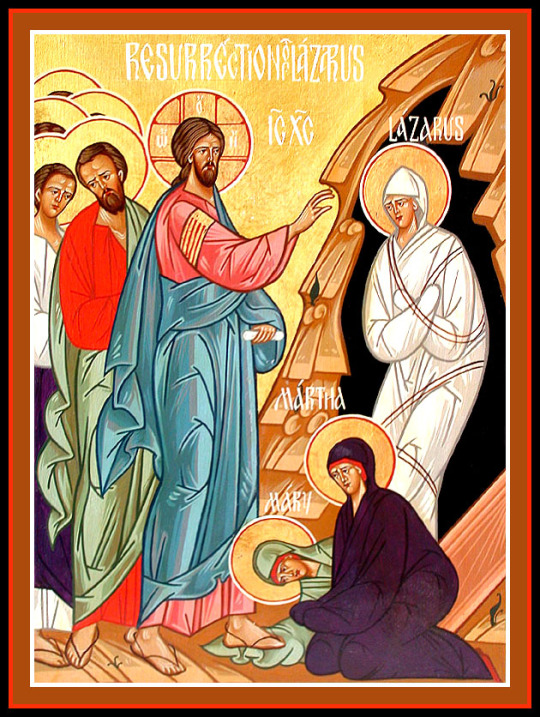
The Raising of Lazarus (Lazarus Saturday)
Commemorated on April 27
By raising Lazarus from the dead before Your passion, You did confirm the universal Resurrection, O Christ God! Like the children with the palms of victory, we cry out to You, O Vanquisher of death: Hosanna in the Highest! Blessed is He that comes in the Name of the Lord!
In a carefully detailed narrative the Gospel relates how Christ, six days before His own death, and with particular mindfulness of the people “standing by, that they may believe that thou didst send me” (John 11:42), went to His dead friend Lazarus at Bethany outside of Jerusalem. He was aware of the approaching death of Lazarus but deliberately delayed His coming, saying to His disciples at the news of His friend’s death: “For your sake I am glad that I was not there, so that you may believe” (John 11:14).
When Jesus arrived at Bethany, Lazarus was already dead four days. This fact is repeatedly emphasized by the Gospel narrative and the liturgical hymns of the feast. The four-day burial underscores the horrible reality of death. Man, created by God in His own image and likeness, is a spiritual-material being, a unity of soul and body. Death is destruction; it is the separation of soul and body. The soul without the body is a ghost, as one Orthodox theologian puts it, and the body without the soul is a decaying corpse. “I weep and I wail, when I think upon death, and behold our beauty, fashioned after the image of God, lying in the tomb dishonored, disfigured, bereft of form.” This is a hymn of Saint John of Damascus sung at the Church’s burial services. This “mystery” of death is the inevitable fate of man fallen from God and blinded by his own prideful pursuits.
With epic simplicity the Gospel records that, on coming to the scene of the horrible end of His friend, “Jesus wept” (John 11:35). At this moment Lazarus, the friend of Christ, stands for all men, and Bethany is the mystical center of the world. Jesus wept as He saw the “very good” creation and its king, man, “made through Him” (John 1:3) to be filled with joy, life and light, now a burial ground in which man is sealed up in a tomb outside the city, removed from the fullness of life for which he was created, and decomposing in darkness, despair and death. Again as the Gospel says, the people were hesitant to open the tomb, for “by this time there will be an odor, for he has been dead four days” (John 11:39).
When the stone was removed from the tomb, Jesus prayed to His Father and then cried with a loud voice: “Lazarus, come out.” The icon of the feast shows the particular moment when Lazarus appears at the entrance to the tomb. He is still wrapped in his grave clothes and his friends, who are holding their noses because of the stench of his decaying body, must unwrap him. In everything stress is laid on the audible, the visible and the tangible. Christ presents the world with this observable fact: on the eve of His own suffering and death He raises a man dead four days! The people were astonished. Many immediately believed on Jesus and a great crowd began to assemble around Him as the news of the raising of Lazarus spread. The regal entry into Jerusalem followed.
Lazarus Saturday is a unique day: on a Saturday a Matins and Divine Liturgy bearing the basic marks of festal, resurrectional services, normally proper to Sundays, are celebrated. Even the baptismal hymn is sung at the Liturgy instead of Holy God: “As many as have been baptized into Christ, have put on Christ.”
Very Rev. Paul Lazor
Christ the Joy, the Truth and the Light of all, the Life of the World and the Resurrection has appeared in His goodness, to those on earth. He has become the Image of our Resurrection, granting divine forgiveness to all!
7 notes
·
View notes
Text
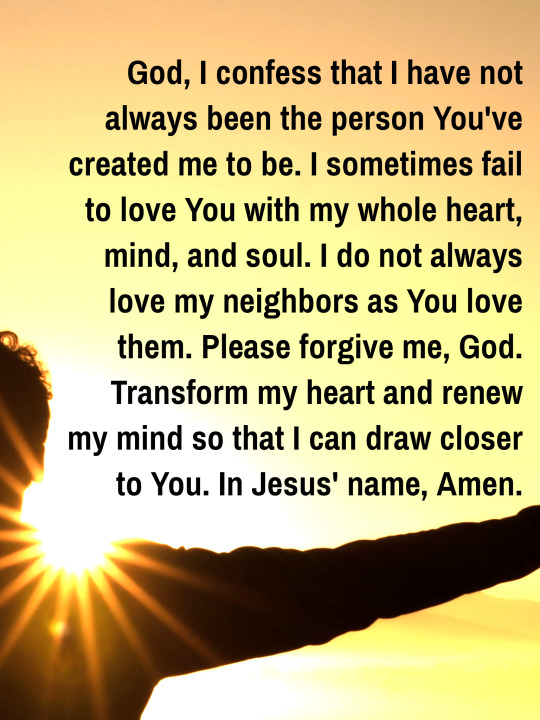
A Faithful and Just God
One of the central aspects of the gospel message is that every human has fallen short of God’s moral standard. We have all sinned, or missed the mark of living rightly. We’ve all messed up, made mistakes, and acted in a way that goes against God’s way of living.
Sin separates us from being in a right relationship with God. But while we were separated from God, Jesus made a way for us to return back to God through His death and resurrection.
Now, we can be in a relationship with God again. But even though we’ve been forgiven for our sins, it doesn’t always feel that way. We frequently carry around the guilt and shame from our sinful actions even though we’ve been forgiven by Christ.
That’s why 1 John 1:9 is a great reminder: when we confess our sins to God, He is faithful to forgive us. Our forgiveness is not based on our own faithfulness— it’s based on God’s faithfulness. Since we know God is faithful and cannot lie, we can trust that He will forgive us and purify us from everything that keeps us from Him.
This means that we don’t need to live under the weight of our own guilt. We have truly been freed in Christ. Forgiveness should empower us to continue to live righteous and faithful lives with God.
Take a moment and thank God for forgiving your sins through Jesus’ death and resurrection. Thank Him that you are now a child of God, free from the guilt of the past. Ask Him to strengthen you as you walk in that truth.
YouVersion Bible Verse of the day devotional
46 notes
·
View notes
Text
The biblical end times - Millennium.
A future vision of the 1000-year reign of Christ. TOWL 103

So, I've always said that TWD is using the bible and very specifically the biblical end time events as a template for the show.
Episode 3 didn't disappoint in giving us some major biblical end times symbolism.
Overall, the whole premise of The Walking Dead is in fact biblical.
The concept is just a reworked version of fallen humanity in need of a saviour/cure.
The Zombies are a representation of fallen humankind, walking around, unaware, that they are the walking dead.
As Rick says, "We're all infected," and death without a cure brings about a state of undying permanent death.
Knowing this is the template they are using can really unlock the symbolism in the show.
It also guarantees that they will eventually bring a cure, through most likely Beth who has been marked as Jesus.
I've already talked about how the CRM rings are a depiction of the Trinity. They are called Borromean rings. They symbolically represent the Father, Son, and Holy Spirit. So CRM=God.
103 TOWL gives us a glimpse into a shadow of the future.
We see Rick enter into the "Millennium park"

What is the biblical millennium?
It's described as the thousand year reign of Christ when he returns. It begins after the battle of Armageddon.
The millennium is a time when the earth is restored to a garden of Eden like state. (The beginning is the end, and the end is the beginning)
Hence, the focus here, as Rick is about to enter, is on a garden/park, and it's all powered by the CRM (God)
We even get a representation of the Trinity in the wind turbines powering the garden, all while the millennium park sign is in the background behind Rick.

It's a time of abundance and peace.
Again, the focus when Rick enters is also on the abundance of produce, and yes, we instantly see a Beth (Christ) lookalike.
With French beret...

Jadis gives us more hints about this millennium. She says they have a 500-year plan to remake the world better than before.

To recreate the world and finally beat death.
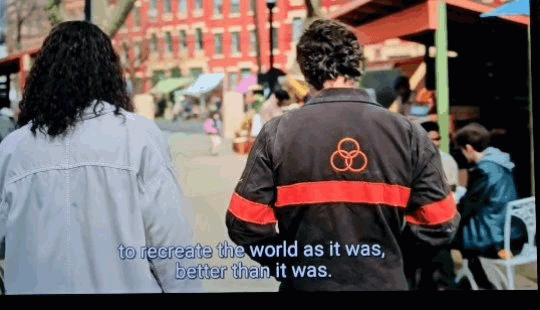
Since the millennium is known as the 1000-year reign of Christ, and we just saw the millennium sign, plus a Beth (Christ) lookalike. Jadis' "besting death" comment is drawing from this bible verse...
1 Corinthians 15:54-57 O Hades, where is your victory? ' The sting of death is sin, and the strength of sin is the law. But thanks be to God, who gives us the victory through our Lord Jesus Christ.” Jesus Christ has conquered death.
Before Jadis entered into the millennium, she explained that she would take lost souls and give them to the CRM (God).

Now, if you remember back to Daryl Dixon episode 1, it's called Lost Soul (Lame Perdue), and Daryl's journey has very much been a spiritual journey to find Beth, just like he found Isabelle in that lost soul episode.
It's also why the episode Find Me with Leah was all about finding Beth.
or...as Aaron puts it. "Good news."

"I have Good News"
I've mentioned before how Aaron saying the term "good news" right as the music box plays is SIGNIFICANT.
The Gospel of Jesus Christ means Good News.
So, finding Jesus Christ is finding the "good news" and, by extension, Beth. That is why Aaron says those exact words when the music box plays.

Daryl, as the lost soul, is on a journey to find the "Good news." 🎶 🎵 📦
Jadis mentions quite a few more biblical references before the end of the episode, including saying...
"I'm a believer", and "We're the last light of the world" 🌎

We also see the consignee talking with Michonne, saying they are on the doorstep to paradise. (The millennium)
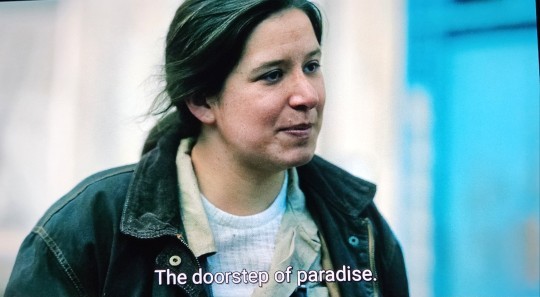
The separation of the sheep 🐑 and the goats 🐐
One other aspect of the millennium they are reworking in TOWL is the theme of the A's and B's.
There are conditions of entry into the millennium kingdom after the battle, and it's known as the separation of the sheep 🐑 and the goats 🐐
The idea of A's and B's comes from this verse...
Matthew 25.31
All the nations will be gathered before him, and he will separate the people one from another as a shepherd separates the sheep from the goats. 33 He will put the sheep on his right and the goats on his left.
34 “Then the King will say to those on his right, ‘Come, you who are blessed by my Father; take your inheritance, the kingdom prepared for you since the creation of the world.
The sheep, the followers, or believers will be granted entry into the Millennium after the battle of Armageddon.
And no surprise, we see Jadis and Rick walk past a sheep 🐑 sign to add another link to the chain.

Goats are not allowed into the kingdom.
In this context, being a goat or "Greatest of all time" indicates a mindset of thinking you are god, and want to be in power, or be the leader.
Which is why Satan fell and got kicked out of heaven in the first place. He wanted to be God...
Isaiah 14.13
You said in your heart, "I will ascend to heaven; I will raise my throne above the stars of God; I will sit enthroned on the mount of assembly, on the utmost heights of the sacred mountain. 14 I will ascend above the tops of the clouds; I will make myself like the Most High."
It's also why you may have seen Satan represented by the symbolism of a goat 🐐 or Baphomet.
The A & B theme has a dual and opposite meaning.
While we have been presented with its meaning in the show being related to the A's = Strong/leaders and the B's = Survivors/followers.
It's actually another take on the conditions of entry into the millennium kingdom.
Only the B's or Believers will be able to enter and will be the ones who live...
While the A's or Apostates/goats won't be granted entry.
The battle of Armageddon that proceeds the millennium.
The reason it's called the battle of Armageddon is because the battle will take place in the Valley of Megiddo.
You have already seen a depiction of the battle of Armageddon in TWD. You just might not realise it, I'll show you soon...
The battle of Armageddon is where the nations of the earth gather to try and destroy God (CRM)
Revelation 16.14
Demonic spirits, performing signs, who go abroad to the kings of the whole world, to assemble them for battle on the great day of God the Almighty.
Revelation 16:16
Then they gathered the kings together to the place that in Hebrew is called Armageddon.
In season 9, we saw the last battle against the Saviours, and it was a representation of this battle. The Saviours war was fought in a representation of that valley.

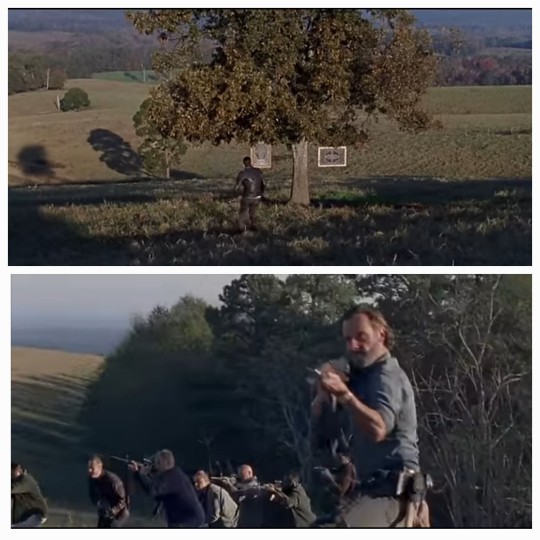
They chose that filming location to depict the Valley of Magiddo.

After the battle, Satan is locked up for the 1000-years.
Here is one verse they are pulling from about Satan, the 1000-year millennium at the end of the battle.
Revelation 20.1-6
And he seized the dragon, that ancient serpent, who is the devil and Satan, and bound him for a thousand years, and threw him into the pit, and shut it and sealed it over him, so that he might not deceive the nations any longer, until the thousand years were ended.
So... Satan is bound and locked up for the 1000 years (goats won't enter) after the battle of Armageddon, which he loses.
After the war with The Saviours, who got locked up and spent a long time locked away in the "pit"?
Negan!
Yes, Negan was symbolically Satan. His weapon of choice is called Lucille, a play on Lucifer.

Not long after that battle, and Negan getting locked up, Rick gets taken away into the millennium...
Now, just like Negan was let out of prison, Satan, too, is released after a long period of time.
Revelation 20:7
When the thousand years are over, Satan will be released from his prison.
So, Negan getting out of prison was a rework of Satan getting released.
Thoughts on...
The cure - Echelon - Phamakon - Mark of the Beast.
The Echelon briefing will be related to a cure, and it's connected to pharmakeia or pharmacy (a drug).
Again, as I've mentioned, we are repeating seasons 1 and 5 combined.
The CDC in season 1 of TWD, was a failed hope for a pharmacological cure that ends up burning.
Whereas season 5 gave us Beth as Christ sacrificing her blood.

As i mentioned above, Jesus defeats death. Is the cure through death and blood sacrifice, and in the show that will come through Beth.
That cure will grant entry into the millennial kingdom.
So there will be two "cures" presented. One will be real, and one will be fake or poison, as Major Beale said to Rick.

Phamakon means cure AND poison, and they are related to the word pharmacy.
The thing is, if the biblical end times is the template they're following, and it is, then there is another kingdom at play here, the Millennial Kingdom of Christ and the other kingdom is the kingdom of the beast.
The kingdom of the beast is the ruling kingdom prior to the millennium, it's this kingdom that causes the world to come and fight against God in the battle of Armageddon.
The two kingdoms are mirror inverted images of each other.
The other condition of entry into the millennium is to have NOT taken the Mark of the Beast - the mark of the Antichrist.
Revelation 20.4
I saw thrones on which were seated those who had been given authority to judge. And I saw the souls of those who had been beheaded because of their testimony about Jesus and because of the word of God. They had not worshiped the beast or its image and had not received its mark on their foreheads or their hands. They came to life and reigned with Christ a thousand years.
The mark of the beast is forced on all people of the world prior to the battle of Armageddon...
Revelation 13:17
And it makes everyone — small and great, rich and poor, free and slave — to receive a mark on his right hand or on his forehead, so that no one can buy or sell unless he has the mark: the beast’s name or the number of its name.
During the kingdom of the beast or the Antichrist kingdom, if you don't receive the Mark of the Beast, you won't be able to buy and sell, and you will be killed. Ultimately you won't be a part of the Antichrist Kingdom if you don't bow the knee and become a follower.
Its the inverse to the millennium kingdom where you will also have to be a follower.
The conditions of entry are almost identical into each kingdom but one will bring a real cure while one bring a poison.
The Kingdom of the antichrist also has a trinity, it includes the Antichrist, the beast and the false prophet.
Antichrist kingdom ♾️ Millennial kingdom.
This episode (103) is called "Bye", a callback to Beth's "Glad I didn't say goodbye" remark, but it's also a hint at buying and selling aka the mark of the beast.


Here we see in the millennial kingdom a sign depicting buying, selling and trading, of the abundance of produce available to those who were granted entry into the kingdom. The condition of entry again was to take the real cure and be a follower of the real Christ (Beth)
In complete opposition and fulfillment of beginning to end, the beast kingdom will only allow in those who bow to the fake cure and the fake Christ, but it's a poison...
When Major Beale mentioned Pharmakon, my eyes 👀 flew out of my head because of this verse from the book of Revelation...
Rev 18.23
The light of a lamp will never shine in you again; and the voice of a groom and bride will never be heard in you again. All this will happen because your merchants were the nobility of the earth, because all the nations were deceived by your sorcery.
The word “sorcery” used here is translated from the Greek word pharmakeia. This is where we get our word pharmacy.
The bible mentions powerful people using Pharmacy and deceiving the whole world just before the millennium.
So, while a pharmacy drug will be presented as a cure, it will actually be a deception. Like Major Beale said, Pharmakon cure is poison.
Revelation 19.20
And the beast was captured, and with it the false prophet who in its presence had done the signs by which he deceived those who had received the mark of the beast and those who worshiped its image. These two were thrown alive into the lake of fire that burns with sulfur.
Just like in season one at the CDC, it's false hope of a cure burns. 🔥 🔥 🔥 Along with the mark of the beast.

We did get two hints at the CDC, one of the real cure and one of the fake cure BTW.
Dr Jenner says a blood test is the condition of entry.

So...blood is the condition of entry 🤔 that will come through the blood of Christ.
We see a representation of this with Andrea (Beth) giving blood. She's the only one we actually see giving blood.

We also saw a representation of the fake cure and it's end result. When Dr Jenner locks them in the CDC he presses 3 digits on a keypad.
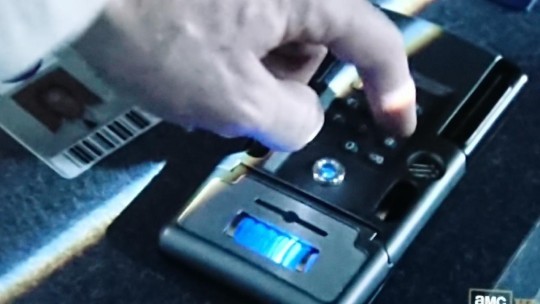
999
Revelation 13:18
This calls for wisdom: Let the one who has understanding calculate the number of the beast, because it is the number of a person. Its number is 666.
Him locking them in (The beast Kingdom) activates the self destruction that leads to the CDC burning.
Revelation 19.20
And the beast was captured, and with it the false prophet who in its presence had done the signs by which he deceived those who had received the mark of the beast and those who worshiped its image. These two were thrown alive into the lake of fire that burns with sulfur.
It is not a coincidence that the outbreak that causes the end of the world, began with a drug in the form of an injection...and the CDC burns 🔥 after a failed attempt at a cure.
💉 👀 beginning to end.
Now, this show likes to repeat, reverse, and invert the story over and over.
They are giving a mix of this end time symbolism to both the good guys and the bad guys deliberately.
But we will eventually see all groups come together to fight the CRM.
We are on a collision course with a bigger, badder, and better version of that battle of Armageddon, but this time with Beth included.
Because yes, this story is still all about her.
I liken her to the Holy Ghost of the Trinity right now. Because even though she's not present on the show, if you're aware, she's influencing every aspect of it.
Jesus Christ (Beth) is coming soon.
✝️ ❎️ 🩸��🐐🩸💉♾️💉🩸🐐🐑🩸❎️✝️
#team delusional#team defiance#team beth lives#bethyl#beth greene#beth is alive#beth is coming#beth greene lives#td#beth x daryl#sheep and goats#millennium#mark of the beast
10 notes
·
View notes
Text
𝐓𝐡𝐞 𝐆𝐢𝐟𝐭 𝐨𝐟 𝐏𝐚𝐬𝐭𝐨𝐫/𝐒𝐡𝐞𝐩𝐡𝐞𝐫𝐝
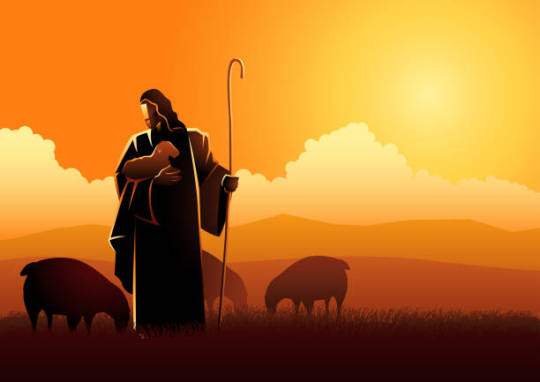
The Greek word for pastor is poimen and simply means shepherd or overseer. The spiritual gift of pastor/shepherd is one that carries many different responsibilities. This gift is closely related to the spiritual gifts of leadership and teaching.
In the Biblical context, shepherds had several different responsibilities to their sheep and ultimately, to the owner of the sheep. They kept a lookout for predators and protected the sheep from attackers. They cared for wounded and sick sheep, nursing them back to health. They rescued them if they became lost or trapped. They spent enormous amounts of time with them guiding them to the places of nourishment and rest. The result was a trust and relationship that kept the sheep following the shepherd. The sheep were attuned to the shepherd’s voice to the point that even if they were temporarily mixed with another herd, at the call of the shepherd they would separate and follow him.
Pastors are called shepherds because their calling is much like those who care for sheep. They are called and gifted to care for the spiritual well-being of a local body of God’s people. Pastors are first and foremost servants. They are servants of God and servants of His bride, the church. They are given a mixture of abilities by grace that allows them to serve the needs of an entire community.
The goal of the pastor is to reveal the glory of God in Christ by the power of the Holy Spirit to people who need God’s grace for life. The primary way the pastor will do this is by teaching the Word of God to the church. The gift of pastor is directly linked to the gift of teaching in Ephesians 4:11 and elsewhere. In fact, this gift could be called the gift of pastor-teacher. The ability to teach the Scriptures is also one of the many requirements of being an overseer.
¹ “This saying can be trusted: Whoever wants to be a bishop desires a noble task. ² Therefore, a bishop must be above reproach, the husband of only one wife, temperate, self-controlled, respectable, hospitable, and a good teacher. ³ He must not be a drunkard, not violent but gentle, not prone to quarreling, not greedy.
⁴ He must manage his own household well and ensure that his children are submissive and respectful in every way. ⁵ For if someone does not know how to manage his own family, how can he take care of the Church of God? ⁶ He should not be a recent convert so that he will not become conceited and incur the same condemnation as the devil. ⁷ He must also enjoy a good reputation among outsiders so that he may not fall into disgrace and into the devil’s snare.”
—1 Timothy 3:1-7
⁶ “Each man must be blameless and the husband of only one wife, with children who are believers and free from any suspicion of licentious or rebellious behavior.
⁷ For in his role as God’s steward a bishop must be blameless. He must not be arrogant or quick-tempered or prone to drunkenness or violent or avaricious. ⁸ Rather, he must be hospitable, a lover of goodness, prudent, upright, devout, and self-controlled. ⁹ In addition, he must hold firmly to the authentic message he has been taught, so that he may be able both to exhort with sound doctrine and to refute those who contradict it.”
—Titus 1:6-9
By teaching the Scriptures to the church, the pastor feeds the “sheep” of God.
The Holy Spirit gives the spiritual gift of pastor to some in the church to humbly teach them, guide them, protect them, and to lead them in the mission that God has for His church, namely the Great Commission. The pastor loves the Gospel of Jesus Christ and puts it at the center of his life and ministry. Pastors do not seek fame or recognition for themselves, but they are placed in a position of authority by the Holy Spirit. The role of a pastor is one of humility and service as he is reminded daily of his overwhelming need of God’s grace for the task at hand.

¹¹ “It was he who established some as apostles, some as prophets, some as evangelists, and some as pastors and teachers,”
—Ephesians 4:11
¹⁵ “Over you I will appoint shepherds after my own heart, and they will direct you with knowledge and understanding.”
—Jeremiah 3:15
²⁸ “Keep watch over yourselves and over all the flock of which the Holy Spirit has made you overseers, and be shepherds of the Church of God that he purchased with the price of his own blood.”
—Acts 20:28
¹¹ “I am the good shepherd.
The good shepherd
lays down his life for the sheep.
¹² The hired hand,
who is not the shepherd
nor the owner of the sheep,
sees the wolf approaching,
and he leaves the sheep and runs away,
while the wolf catches and scatters them.
¹³ He runs away
because he is only a hired hand
and he has no concern for the sheep.
¹⁴ I am the good shepherd.
I know my own,
and my own know me,
¹⁵ just as the Father knows me
and I know the Father.
And I lay down my life for the sheep.
¹⁶ I have other sheep too
that do not belong to this fold.
I must lead them as well,
and they will hear my voice.
Thus, there will only be one flock,
one shepherd.
¹⁷ This is why the Father loves me,
because I lay down my life
in order to take it up again.
¹⁸ No one takes it away from me.
I lay it down of my own free will.
And as I have the power to lay it down,
I have the power to take it up again.
This command I have received from my Father.”
—John 10:11-18
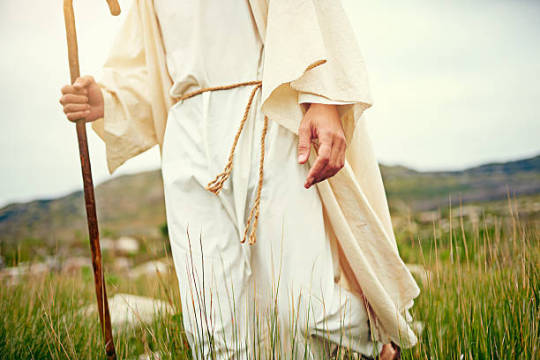
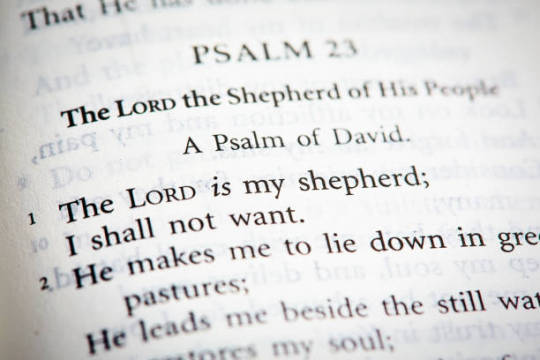
#spiritual gifts#shepherd#pastor#man of God#God's gifts#God#bible verse#bible scripture#scripture#Christianity#Roman Catholic#catholic#christian#Jesus Christ#Jesus#Christ#christian quotes#christian motivation#spiritual#holy spirit#christian blog#writeblr#writers on tumblr#writerscommunity#writersociety#bible study#bible#bible quote#the bible#bishop
7 notes
·
View notes
Text

“On the day of Pentecost all the believers were meeting together in one place. Suddenly, there was a sound from heaven like the roaring of a mighty windstorm, and it filled the house where they were sitting. Then, what looked like flames or tongues of fire appeared and settled on each of them. And everyone present was filled with the Holy Spirit and began speaking in other languages, as the Holy Spirit gave them this ability.” —Acts 2:1-4 (NLT)
“After this prayer, the meeting place shook, and they were all filled with the Holy Spirit. Then they preached the word of God with boldness.” —Acts 4:31 (NLT)
Today is Pentecost Sunday. Why do Christians celebrate Pentecost? Here are some insights from Crosswalk.com:
“Pentecost is a Christian holiday, observed on the seventh Sunday after Easter, that celebrates the blessing of the Holy Spirit upon the Apostles and other followers of Jesus Christ, as mentioned in the Acts of the Apostles (Acts 2:1-31). The day of Pentecost is known in the Christian Church as the day on which the Spirit descended upon the apostles. Guided by Peter's preaching, many thousands were converted in Jerusalem.
This year, Pentecost will be on Sunday, May 28th, 2023 occurring seven weeks after Easter Sunday (April 9). Why do Christians celebrate Pentecost? According to Ray Pritchard from Christianity.com, “Modern Christians observe Pentecost as a holiday, not to celebrate a wheat harvest, but to remember when the Holy Spirit invaded the Church in Acts 2.”
The description in Act 2 states that, after Jesus ascended into heaven, Jesus’ followers were gathered together for the Feast of Harvest (aka Pentecost), and the Holy Spirit “filled the whole house where they were sitting” (Acts 2:2). “All of them were filled with the Holy Spirit and began to speak in other tongues as the Spirit enabled them” (Acts 2:4). This unusual event drew a large crowd, and Peter stood up to speak to them about repentance and the gospel of Christ (Acts 2:14). By the end of the day that the Holy Spirit came, the Church grew by 3,000 people (Acts 2:41). This is why Christians still celebrate Pentecost.
Pentecost in the Bible:
Acts 2:1-4 "When the day of Pentecost came, they were all together in one place. Suddenly a sound like the blowing of a violent wind came from heaven and filled the whole house where they were sitting. hey saw what seemed to be tongues of fire that separated and came to rest on each of them. All of them were filled with the Holy Spirit and began to speak in other tongues as the Spirit enabled them."
John 14:26 "But the Advocate, the Holy Spirit, whom the Father will send in my name, will teach you all things and will remind you of everything I have said to you."
Exodus 32:22 "Celebrate the Festival of Weeks with the firstfruits of the wheat harvest, and the Festival of Ingathering at the turn of the year."
A Prayer for Pentecost:
Dear Heavenly Father, on this day, 2000 years ago, you inaugurated the church by having the Holy Spirit indwell in your believers. We rejoice that you have allowed us, men and women, Jew and Gentile, to experience new life. Thank you for the gift of the Holy Spirit, our comforter, our guide, and so many other things. And may we continue to celebrate this day until you return again. Amen."
Other links:
Bible Verses About Pentecost
5 Remarkable Things to Know About Pentecost Sunday
Prayers for Pentecost and Holy Spirit Power
#acts 2:1-4#acts 4:31#pentecost#the bible#jesus#bible verses#bible verses about pentecost#bible truths#the word of god#bible study#crosswalk.com#christian devotionals#daily devotionals#what is pentecost#christian blog#christian life#christian living#christian faith#christian inspiration#holy bible#god loves you
27 notes
·
View notes
Text
"The words are those of the Puritan John Preston:
And hence it was, that Jesus Christ said unto his disciples, 'Go and preach the gospel to every creature under heaven:' that is, Go and tell every man without exception, that here is good news for him! Christ is dead for him! and if he will take him, and accept of him his righteousness, he shall have him."
-The Whole Christ, p. 40 [Punctuation from the original]
The most obviously jarring part of this to modern ears is the bit that says, "Christ is dead for him," as though Christ had not been raised, but that is not the author's intention at all, rather:
"It is possible in stating the biblical truth "Christ died for you" to separate the person (now risen) from the work (he "died" sometime in the past). But for Boston, part of the appeal of Preston's language is the way in which it encapsulated the unity of person and work in Christ: 'he is dead' - and it is as such that I offer him to you as a risen and all-sufficient Savior."
-The Whole Christ, p. 44
My notes on this point: as usual the strength of my book analysis is in finding additional scripture to support things the author is saying, and I believe the author's point here is biblical. In the Bible we can find examples of Christ's work being mentioned as a part of His identity rather than something that just happened to him at one time.
Then I saw a Lamb, looking as if it had been slain, standing at the center of the throne, encircled by the four living creatures and the elders.
Rev. 5:6
All who dwell on the earth will worship him, whose names have not been written in the Book of Life of the Lamb slain from the foundation of the world.
Rev 13:8
Ferguson's point here is that Christ in his full identity as the Savior is himself the gospel, and the gospel should never be understood as a distinct thing from being 'in Christ'. This alone makes a massive effect on legalism, which can arise as a result of a lot of analytical theories about how salvation and justification etc. works on a technical level.
16 notes
·
View notes
Text
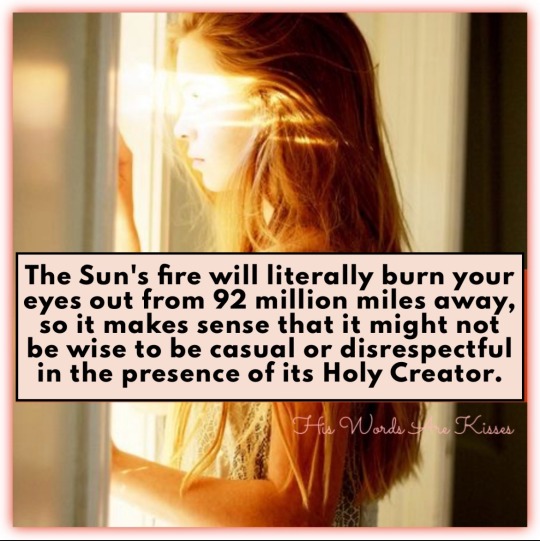
I think about these things often when I hear people tell stories about things they have thought in their mind, or said, or done, standing face to face with Jesus and I just know it cannot be possible. Even the demons tremble in His presence.
Just like the curtain of the tabernacle in the old testament was a symbol and reminder of the separation between a Holy God and sinful humans. The torn body of The Holy Son of God represented The torn veil. Jesus tore away that veil of separation by His own shed blood on The Cross so that all who believe on Him would have access into God’s presence.
But as we stand in His presence we should be mindful of what it cost to make it possible for us to stand there at all, and to be mindful that we stand there clothed in Christ Himself ~ to behave like it. Reverence and awe should be a natural fruit of God’s Spirit within us.
We should feel comfort to speak to Him as a child would speak to a loving Father ~ as Jesus did ~ but also reverently as Jesus did as well. The 17th chapter of the gospel of John is a perfect example of both.
It occurs to me often that in spite of how comfortable that John was with Jesus, having walked with Him all those years ~ when he was in His presence after His death and resurrection, John fell on his face! He did not stroll up to Jesus casually or irreverently. I have heard stories of people who say that they have been face to face with Jesus and yet the things they thought of and said would make you shudder. Even the demons trembled in His presence.
And When Isaiah found himself in the presence of the holy God, his heart melted within him, and he cried, “Woe to me! I am ruined! For I am a man of unclean lips, and I live among a people of unclean lips, and my eyes have seen the King, the Lord Almighty” (6:4). Isaiah was overwhelmed by God’s sovereignty, power, and holiness.
The presence of His glory and power alone would overwhelm a human to the point of never thinking of such a thing. Surely even the thought of trampling His sacrifice under our feet would expel it before it could even exist!!
I pray He will help us to feel as comfortable as a child on the lap of the most loving Father we could ever imagine, but to also bear the fruit of reverence and respect in the presence of a Holy God.
And that is all. 🥹
7 notes
·
View notes
Text
Mine
Mine.
A simple, four-letter word. A basic concept.
And the most dangerous idea our species has ever come up with.
When I say “mine,” I mean all mine. Not just me first.
It’s not enough that I win. You have to lose.
Taken to its natural conclusion, that is where “mine” ends up.
If you’ve ever wondered what can destroy the strongest bonds of love and friendship, this is it.
If you’ve ever wondered what can separate us from God, what got us tossed out of the Garden, this is it.
“Mine” is the original sin.
We disguise “mine” in all kinds of ways. But whether we clothe in the language of success. Or power. Or influence. Or wealth. Or even fear. They’re all just different ways of saying “mine.”
In today’s Gospel, the questioners of Jesus may have dressed it up as a question about eternity. But Jesus sees it for what it really is. Just another way of saying “mine.”
It would be funny, if it wasn’t so sad. Because they’re saying “mine” about something that none of us can ever really say “mine” about. Eternity.
Not because eternity is beyond our control (although it is). But because eternity is the exact opposite of “mine.” As C.S. Lewis put it,
“Give up yourself, and you will find your real self. Lose your life and you will save it.
Submit to death, death of your ambitions and favorite wishes every day and death of your whole body, in the end submit with every fiber of your being, and you will find eternal life.
Keep back nothing. Nothing that you have not given away will be really yours.
Nothing in you that has not died will ever be raised from the dead.
Look for yourself, and you will find in the long run only hatred, loneliness, despair, rage, ruin, and decay.
But look for Christ and you will find Him, and with Him everything else thrown in.”
Today’s Readings
#Mine#Original Sin#God#Jesus#Catholic#Christian#Church#Eternity#Seek ye first#C.S. Lewis#Moments Before Mass
30 notes
·
View notes